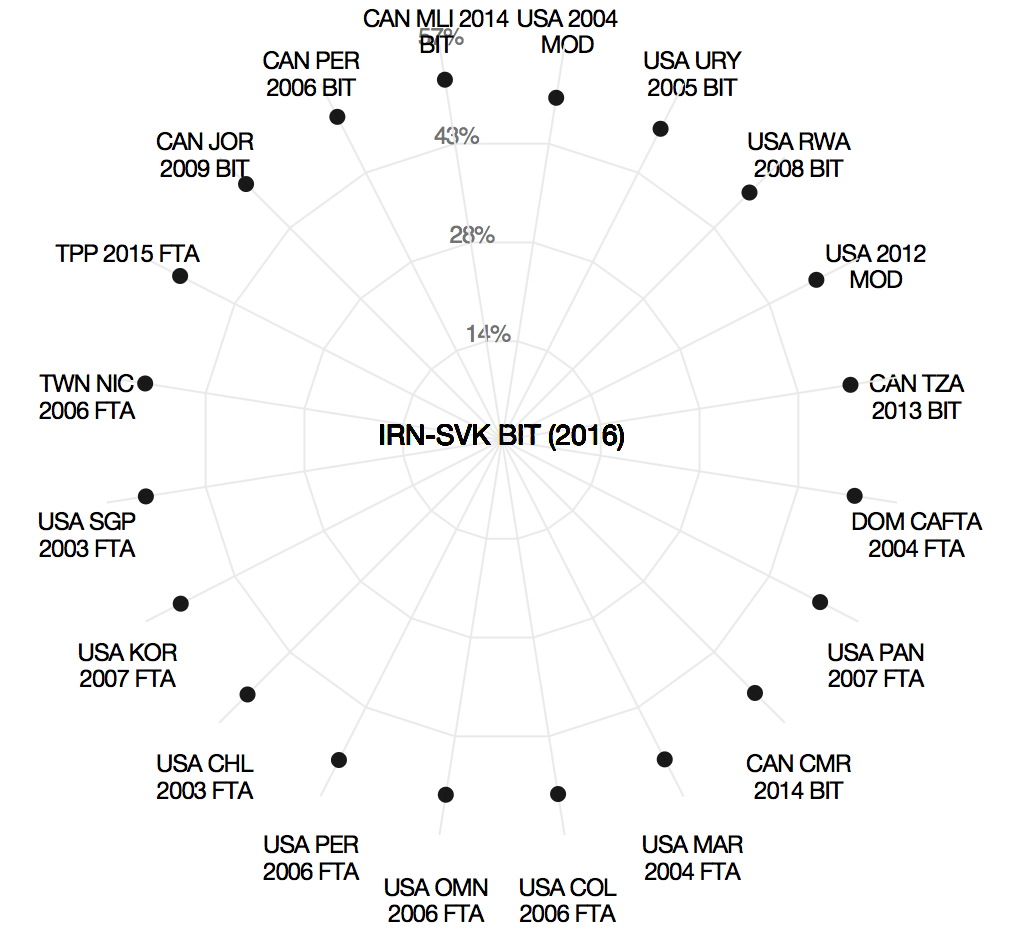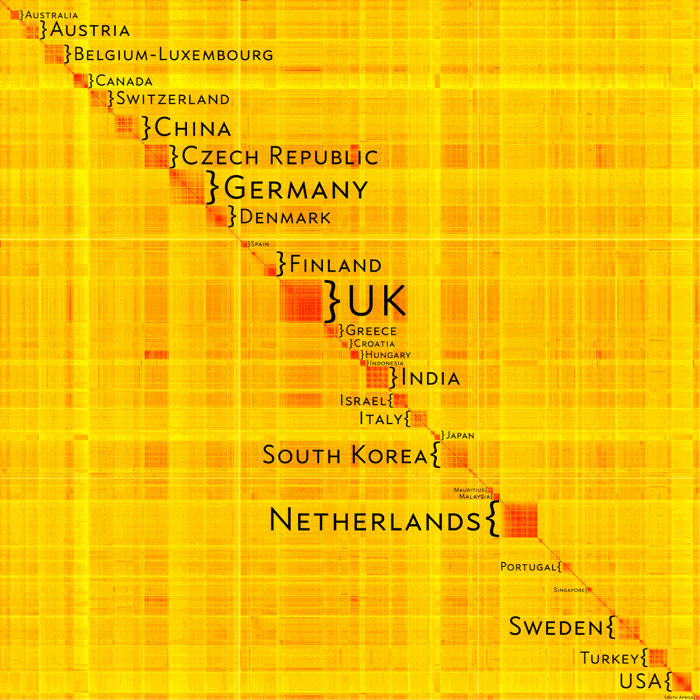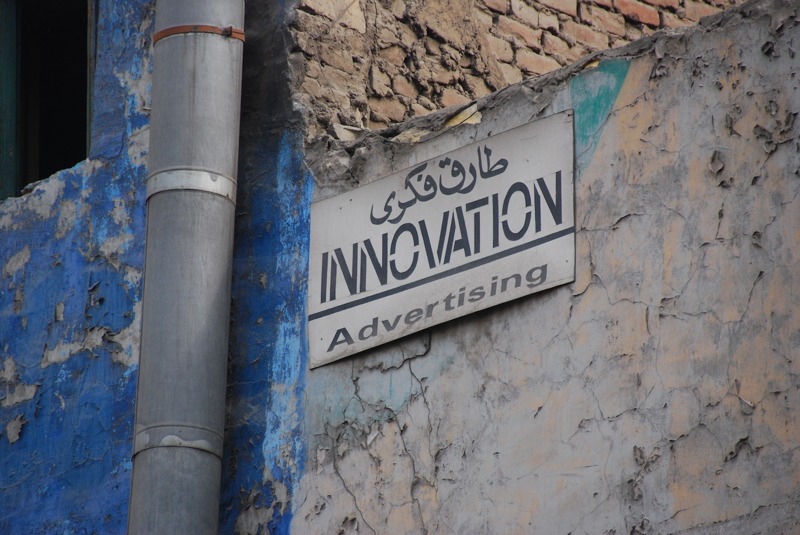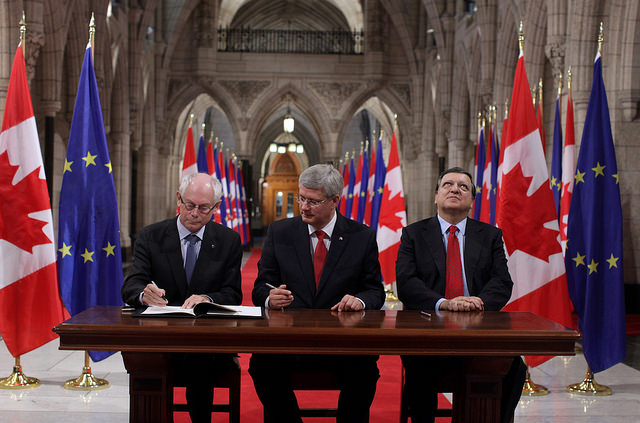Can Robots Write Treaties? Yes, They Can!
10 Jul 2017
 Recurrent neural networks trained on investment treaty texts can automatically draft new clauses of lawyer-like quality. They will not replace negotiators, but may make their task of composing a compromise text easier.
Recurrent neural networks trained on investment treaty texts can automatically draft new clauses of lawyer-like quality. They will not replace negotiators, but may make their task of composing a compromise text easier.
The power of expertise in BIT negotiations
18 Oct 2016
 GUEST POST by Tarald Laudal Berge, PhD Candidate in Political Science, PluriCourts, Olso.
GUEST POST by Tarald Laudal Berge, PhD Candidate in Political Science, PluriCourts, Olso.
 Textual similarity analysis offers a new way to investigate who wins treaty negotiations. But not every deviation from a prior agreement or a country’s model treaty is a concession.
Textual similarity analysis offers a new way to investigate who wins treaty negotiations. But not every deviation from a prior agreement or a country’s model treaty is a concession.
Will TPP Stop China’s Rise?
18 Aug 2016
 GUEST POST by Todd N. Tucker, Research Fellow at the Roosevelt Institute.
GUEST POST by Todd N. Tucker, Research Fellow at the Roosevelt Institute.
 While all attention is focused on mega-regional negotiations, European states are quietly beginning to redesign their national investment treaty programs. The recent Slovakia-Iran BIT gives a taste of the innovations to come.
While all attention is focused on mega-regional negotiations, European states are quietly beginning to redesign their national investment treaty programs. The recent Slovakia-Iran BIT gives a taste of the innovations to come.
Rule-Takers and Rule-Makers in the BIT Universe: Empirical Evidence of a North-South Divide
28 Jul 2016

Who writes the rules in the BIT universe? Our recent text-as-data research suggests that investment law is marked by a North-South divide between developed country rule-makers and developing country rule-takers.
Diffusion of Public Policy Exceptions in Investment Treaties — How Africa turned from Innovator to Imitator
29 Jun 2016
 Although devloped countries were the main architects of the BIT universe, some treaty features have a distinctly developing country handwriting as our analysis of African BIT innovators suggests.
Although devloped countries were the main architects of the BIT universe, some treaty features have a distinctly developing country handwriting as our analysis of African BIT innovators suggests.
 When official treaty negotiations end, unofficial negotiations begin. Changes made during “legal scrubbing” can turn the original deal on its head as our text-as-data analysis shows.
When official treaty negotiations end, unofficial negotiations begin. Changes made during “legal scrubbing” can turn the original deal on its head as our text-as-data analysis shows.
About this blog
Short post summarize the key findings from our Mapping BITs research. Each post links to the underlying research paper and refers to other helpful online resources.
Do you want to share your findings from using the Mapping BITs website? Then send us your draft post.
Author

Wolfgang Alschner
Research Fellow at the Graduate Institute of International and Development Studies, Geneva, and the World Trade Institute, Bern